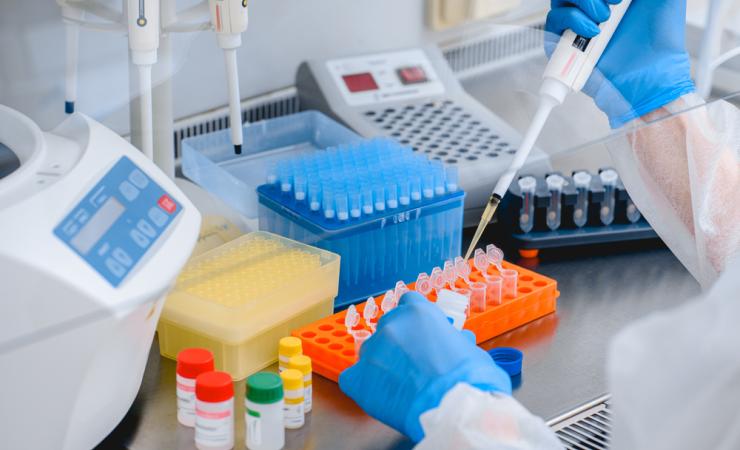Millions of people worldwide live with persistent viral infections such as HIV (human immunodeficiency virus) and hepatitis. Meanwhile people whose immune systems are weakened following stem cell transplants are also highly vulnerable to serious viral infections.
Advances in treatments mean many people affected by these viruses are able to keep the infection under control for years. However, the treatments do not work for everyone, and viruses can develop resistance to treatments.
The aim of new IHI project VIROMARKERS is to develop biomarkers that would revolutionise the care of people living with HIV and hepatitis D, as well as stem cell transplant patients at risk of cytomegalovirus (CMV) infection or reactivation.
Combining the scientific interests of the biomedical community with innovative biotech industries
"The project is financed by a public-private partnership and brings together researchers from public institutions, industries from the European life science landscape and patients’ associations," said VIROMARKERS project coordinator Francesca Incardona of EuResist Network, a European Grouping fighting HIV resistance and other infectious diseases. “We are thrilled that we were able to combine the true scientific interests of our biomedical community with the needs of outstanding innovative biotech industries into a common project, an exciting new adventure with a clear potential impact on the lives of many.”
Focus on HIV, hepatitis D, and cytomegalovirus
Antiretroviral therapy (ART) for HIV is highly effective; most people who take it as prescribed are able to suppress the virus and live long, healthy lives. Nevertheless, people living with HIV do need regular tests to ensure that their ART is still working as it should. One goal of VIROMARKERS is to advance the use of quantitative HIV DNA as a marker of increased risk of disease rebound in people with HIV who previously had their disease under control. This information is vital for patients and doctors who need to know early on if they need to switch to a different form of ART.
The project also plans to develop a better biomarker to identify which patients are most likely to respond well to a new type of HIV treatment based on neutralising antibodies. The tests that are currently used for this are cumbersome, lengthy, and the results may be inaccurate.
The hepatitis D virus causes a particularly severe form of the disease, which rapidly progresses towards the development of cirrhosis and liver cancer. A new drug called bulevirtide has been a game-changer in the treatment of hepatitis D, but we lack markers to predict which patients will respond best to the drug. VIROMARKERS wants to change that.
Finally, cytomegalovirus (CMV) is a common infection in people whose immune system is weakened following a haematopoietic stem cell transplantation. CMV is major cause of illness, death and transplant failure. VIROMARKERS aims to deliver new biomarkers that could help identify the stem cell transplant patients at greatest risk of CMV infection or reactivation, so that their management can be optimised.
“An exceptional collaboration”
For all three infectious diseases, VIROMARKERS expects to deliver solutions that are both scientifically robust and practical and transformative for healthcare. Ultimately, the project outcomes will pave the way for new tests that will allow people living with these chronic infections and their clinicians to take better-informed decisions about their treatment.
“Viromarkers is an exceptional collaboration at the intersection of cutting-edge science and industrial innovation,” said VIROMARKERS industry lead Sabina Schaal of altona Diagnostics. “We are honoured to contribute our expertise in molecular diagnostics to drive forward novel solutions.”
